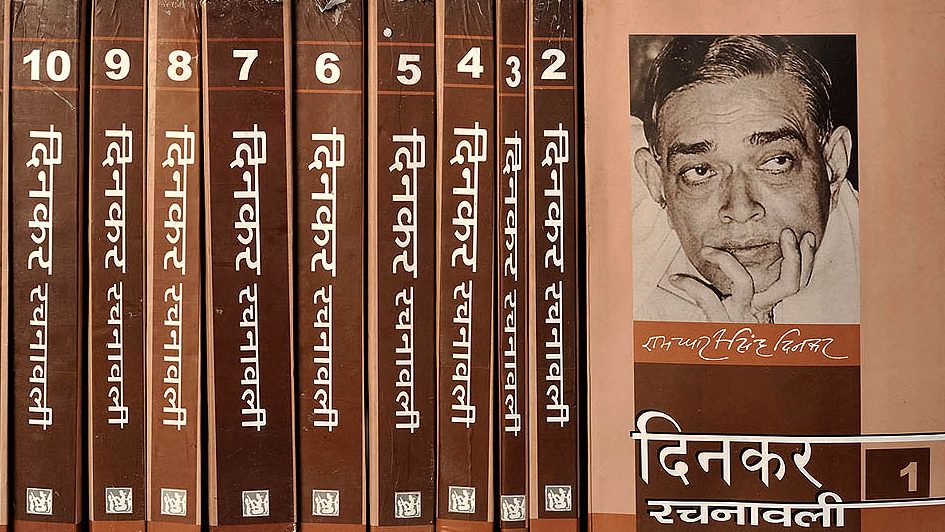Don’t we all love the pronoun “I”? It stands for uniqueness. In the first ever marriage, the first “I” was united with another “I” to live in permanent union as “we”. The single “I” is very important, but then so is the one that joins it. Centuries have passed since the first marriage, but the wrong “I” seems to reign supreme in the relationship.
How much in love I was before the wedding! Deep, blind, sacrificial love it was. Priya, my beloved, was the most precious person in my life. I would sacrifice time, money, desires and at times, even my own needs so she could be happy. The focus of my existence was the other “I”.
 Then we got married. The selfish “I” that had so far remained submerged beneath layers of love soon surfaced and started the war. As we fought over trivial matters we aimed to make our “I” win. Soon we were asking ourselves, “What happened to our loving harmony?”
Then we got married. The selfish “I” that had so far remained submerged beneath layers of love soon surfaced and started the war. As we fought over trivial matters we aimed to make our “I” win. Soon we were asking ourselves, “What happened to our loving harmony?”
The selfish “I” wanted to change the other. We underwent tumultuous times, used slingshots of words for impact, hurled fireballs of blame, savagely expressed power, indulged in volatile explosion to control, dug up the past stung by pain, and so on and so forth. The battle of marriage went on.
Sometimes I took a beating, but many a time I managed to win. Even in victory, when either one of us won, I realized the “we” lost. Harmony was the casualty. Hesitant to change ourselves, we persist in changing the other. I remember exchanging the “I” for “you” when I wanted to change, accuse, torment or hurt her. The progress from the use of “I” to “you” made us powerful antagonists.
Our conversation often went like this:
“You don’t understand; you never do!”
“You need to change the way this is done”
“You never listen!”
Strange is the power of communication. One young woman said, “He never compliments my cooking.” To which the young man replied, “I always do. I don’t grumble, but eat everything! Marriage is about sacrifice; I stopped drinking, smoking, gave up non-veg and still she fights with me!”
“I started cooking non-veg, prepared food for his friends often, wore saris and he still doesn’t understand me!” she retorted.
At this point, the following thought challenged me: “I” has always been the reason for all the trouble; how can it become the peacemaker and peacekeeper instead? How can “I” show the way to reduce the battles in our married life?
I started looking at “I” while focusing on the problem. It took me a while to get used to it, but the results amazed both of us! It enabled us to respond rather than react with our words and thoughts. It caused each of us to think first, develop empathy and present our side of the problem clearly, without attacking the other. The conversation then changed into an invitation to address each other’s feelings first.
I say, “I feel lonely, when you just forget about me and watch TV.” Immediately, the TV gets muted; more listening takes place, leading to the TV getting switched off, and we have a swell time together playing scrabble!
I said, “I would be really happy to see you in that outfit when we go out today”, and bingo! She wears it.
She says, “I feel hurt when you compare me with the other girls you know.” I put a full stop to it.
She says, “I feel neglected when you spend your evening with other friends.” That stops, too.
So, did you see what just happened?
We brought back “I” into the conversation and clearly articulated verbally and non-verbally the emotions and feelings going on in our minds. Now, some may start trying this and find it actually looks silly – that is because it has been ages since you last used it and the rust of unexpressed true feelings has set in – both in the mind of the sayer and the listener. So, you first need to dig out root feelings – when you get angry, take a paper, dig down like a mind map to find the root feelings and then share it with real honesty. Remember the key is to make sure the verbal and non-verbal are in balance; otherwise it will indeed look silly! And keep on trying; don’t drop it because it looks silly or your spouse is looking at you suspiciously. Once he/she knows it is real and you really mean what you are saying, things are only going to get better!
As you know when learning something new, one needs to practise it regularly for at least a month before it becomes part of your communication. Believe me, it will be hard when you try expressing your feelings – the true root ones – because you are actually making yourself vulnerable. Now if you can’t be vulnerable with your wife, you need to really work on doing so, for transparency is key to a true, happy marriage. So take responsibility for your part of the relationship and the results will surprise you! End unnecessary battles that take a toll on the relationship. Live in joy and peace instead.
This article is adapted and reprinted with permission from Family Mantra (www.familymantra.org), a magazine that addresses urban family issues, to strengthen and restore families





